Indesit DIF 66B1 Handleiding
Indesit
Afwasmachine
DIF 66B1
Bekijk gratis de handleiding van Indesit DIF 66B1 (44 pagina’s), behorend tot de categorie Afwasmachine. Deze gids werd als nuttig beoordeeld door 93 mensen en kreeg gemiddeld 4.6 sterren uit 47 reviews. Heb je een vraag over Indesit DIF 66B1 of wil je andere gebruikers van dit product iets vragen? Stel een vraag
Pagina 1/44

Operating instructions
DISHWASHER
Contents
Product Fiche, 2
Precautions, advice and Assistance, 3-4
General safety
Disposal
Saving energy and respecting the environment
Assistance
Installation, 5-6
Positioning and levelling
Connecting the water and electricity supplies
Advice regarding the first wash cycle
Technical data
Description of the appliance, 7
Overall view
Control panel
Loading the racks, 8-9
Lower rack
Cutlery basket
Upper rack
Adjusting upper rack
Start-up and use, 10
Starting the dishwasher
Measuring out the detergent
Wash cycles, 11
Table of wash cycles
Rinse aid and refined salt, 12
Measuring out the rinse aid
Measuring out the refined salt
Care and maintenance, 13
Shutting off the water and electricity supplies
Cleaning the dishwasher
Preventing unpleasant odours
Cleaning the sprayer arms
Cleaning the water inlet filter
Cleaning the filters
Leaving the machine unused for extended periods
Troubleshooting, 14
English, 1
EN
DIF 66B1
FR
Français, 15
NL
Nederlands, 29

EN
2
Product Fiche
Brand INDESIT
Model DIF 66B1
Rated capacity in standard place settings (1) 13
Energy efciency class on a scale from A+++ (low consumption) to D (high consumption) A+
Energy consumption per year in kWh (2) 293.0
Energy consumption of the standard cleaning cycle in kWh 1.03
Power consumption of the off-mode in W 0.5
Power consumption of the left-on mode in W 5.0
Water consumption per year in litres (3) 3080.0
Drying efcacy class on a scale from G (low efcacy) to A (high efcacy) A
Programme time for standard cleaning cycle in minutes 190
The duration of the left-on mode in minutes 10
Noise in dB(A) Re 1pW 46
Built-in model Yes
NOTES
1) The information on the label and che relates to the standard cleaning cycle, this programme is suitable to clean normally
soiled tableware and it is the most efcient programme in terms of combined energy and water consumption. The standard
cleaning cycle corresponds to the Eco cycle.
2) Based on 280 standard cleaning cycles using cold water ll and the consumption of the low power modes. Actual energy
consumption depends on how the appliance is used.
3) Based on 280 standard cleaning cycles. Actual water consumption depends on how the appliance is used.
Product fiche

EN
3
* Only available in selected models.
Precautions, advice and
Assistance
This appliance was designed and
manufactured in compliance with international
safety standards The following information has
been provided for safety reasons and should
therefore be read carefully.
Keep this instruction manual in a safe place for
future reference. If the appliance is sold, given
away or moved, please ensure the manual is kept
with the machine.
Please read these instructions carefully: they
contain important information on installation, use
and safety.
This appliance is designed for domestic use or
similar applications, for example:
- staff kitchen areas in shops, offices and other
work environments;
- farmhouses;
- use by guests in hotels, motels and other
residential settings;
- bed & breakfasts.
General safety
• This applianceshouldnotbe operatedby
children younger than 8 years, people with
reduced physical, sensory or mental capacities,
or inexperienced people who are not familiar
with the product, unless they are given
supervision or instructions on how to use it
safely and are made aware of the dangers its
use might entail.
• Childrenmustnotplaywiththeappliance.Itis
the user’s responsibility to clean and maintain
the appliance. Children should never clean or
maintain it unless they are given supervision.
• The appliance was designed for domestic
use inside the home and is not intended for
commercial or industrial use.
• Theappliancemustbeusedbyadultsonlyto
wash domestic crockery in accordance with
the instructions in this manual.
• Theappliancemustnotbeinstalledoutdoors,
even in covered areas. It is extremely dangerous
to leave the machine exposed to rain and
storms.
• Donottouchtheappliancewhenbarefoot.
• Whenunpluggingtheappliancealwayspullthe
plug from the mains socket. Do not pull on the
cable.
• Thewatersupplytapmustbeshutoffandthe
plug should be removed from the electrical
socket before cleaning or maintaining the
appliance.
• Iftheappliancebreaksdown,donotunderany
circumstances touch the internal parts in an
attempt to perform the repair work yourself.
• Do not lean or sit on the open door of the
appliance: this may cause the appliance to
overturn.
•Thedoorshouldnotbeleftopenasitmaycreate
a dangerous obstacle.
• Keepdetergentandrinseaidoutofreachof
children.
• Knivesand other utensils withsharp edges
must be placed either in the cutlery basket with
the points facing downwards or horizontally in
the tip-up compartments on the upper rack.
Disposal
• Disposalofpackagingmaterial:observelocal
legislation so that the packaging may be
reused.
• The European Directive 2012/19/EU relating
toWasteElectricalandElectronicEquipment
(WEEE) states that household appliances
should not be disposed of using the normal
solidurbanwastecycle.Exhaustedappliances
should be collected separately in order to
optimise the re-using and recycling rate of the
materials inside the machine, while preventing
potential damage to the environment and public
health. The crossed-out dustbin symbol is
marked on all products to remind the owners
of their obligations regarding separated waste
collection.
For further information relating to the correct
disposal of household appliances, owners may
contact the relevant public authority or the local
appliance dealer.
Saving energy and respecting the
environment
Saving water and energy
• Onlybeginawashcyclewhenthedishwasher
isfull.Whilewaitingforthedishwashertobe
filled, prevent unpleasant odours using the Soak
cycle
(seeWashcycles)
.
• Selectawashcyclethatissuitedtothetype
of crockery and to the soil level of the crockery
using the Table of wash cycles:
-fordisheswithanormalsoillevelusetheEco
washcycle,whichensureslowenergy/water
consumption levels.
- If the load is smaller than usual activate the
Half Load option*
(see Start-up and use).
• Ifyourelectricitysupplycontractgivesdetailsof
electricity-saving time bands, run wash cycles
when electricity prices are lower. The Delayed
Start button *
(see Start-up and use)
helps you
organise the wash cycles accordingly.
Product specificaties
| Merk: | Indesit |
| Categorie: | Afwasmachine |
| Model: | DIF 66B1 |
Heb je hulp nodig?
Als je hulp nodig hebt met Indesit DIF 66B1 stel dan hieronder een vraag en andere gebruikers zullen je antwoorden
Handleiding Afwasmachine Indesit

17 Augustus 2022

17 Augustus 2022

16 Augustus 2022

27 November 2021

15 Augustus 2022

7 Februari 2022

15 Augustus 2022

16 Augustus 2022

16 Augustus 2022

17 Augustus 2022
Handleiding Afwasmachine
- Zanussi-electrolux
- LG
- Teco
- Proline
- OK
- Respekta
- Junker
- Hoonved
- Asko
- Whynter
- BEKO
- Juno-electrolux
- Balay
- Nordmende
- Edy
Nieuwste handleidingen voor Afwasmachine

26 September 2024
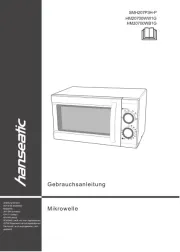
24 Juli 2024
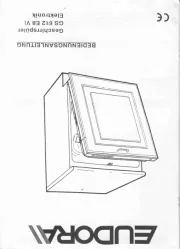
1 Maart 2024

1 Maart 2024
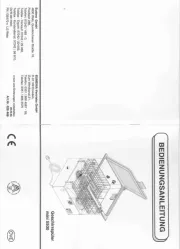
1 Maart 2024

1 Maart 2024
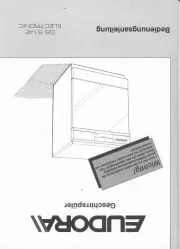
1 Maart 2024
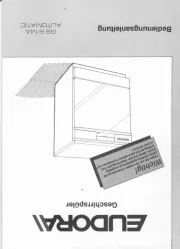
1 Maart 2024

1 Maart 2024

10 Januari 2024